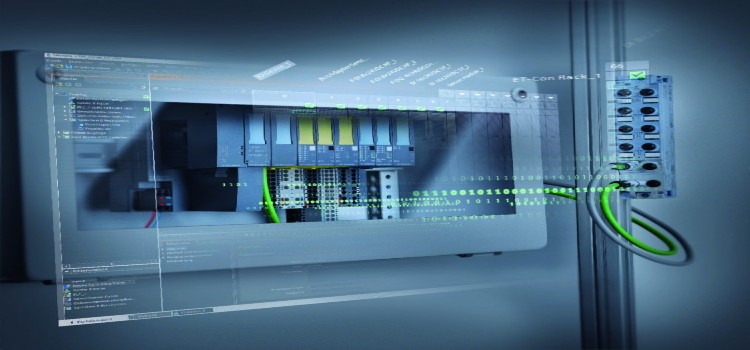
Mixed Reality Market by Component (Hardware and Software), by Device Type (Wired and Wireless), and by Application (Automotive & Aerospace, Healthcare, Entertainment, E-Commerce & Retail, and Others)- Global Opportunity Analysis and Industry Forecast 2024-2030
Mixed Reality Market Overview
The Mixed Reality Market size was valued at USD 2.44 billion in 2023 and is predicted to reach USD 57.04 billion by 2030 with a CAGR of 55.9% from 2024-2030. Mixed reality (MR) market also known as hybrid reality market refers to the industry focused on the development, deployment, and utilization of technologies that blend physical and digital worlds to create immersive, interactive environments.
Mixed reality encompasses both augmented reality (AR) and virtual reality (VR) to provide seamless integration of real and virtual elements, allowing businesses to enhance productivity, collaboration, and consumer engagement. MR is leveraged across various industries to improve training, design, visualization, remote assistance, and interactive marketing, driving innovation and operations efficiency within businesses.
Market Dynamics and Trends
The rising investment and funding in reality technologies from venture capitalists and tech giants are significantly driving the mixed reality market growth. According to the International Data Corporations (IDC) worldwide augmented and virtual reality spending guide, European augmented reality and virtual reality (AR/VR) spending is expected to reach USD 1.1 billion and USD 3.4 billion, respectively, in 2023.
This growth in the industry leads to innovative MR product and solutions, enhancing the capabilities and applications of MR in various industries. This influx of investment and growth facilitates the development of cutting-edge MR tools, making them more accessible to businesses and consumers. Also, the growing adoption of digital technologies including artificial intelligence (AI), cloud computing, and internet of things (IoT) and big data analytics across industries is further boosting the market growth.
For instance, in 2022 ChatGPT reached 1 million users in less than a week of its launch and by 2023 the AI platform accumulated over 100 million monthly users. Businesses seek to integrated advanced cutting-edge technologies to improve operational efficiency and consumer experience, driving the demand for mixed reality. This rapid growth and adoption of digital technologies indicated a strong market readiness and potential for more innovative solution for businesses.
Additionally, the rapid growth of the entertainment and gaming industry along with the rising demand for immersive and interactive experience is accelerating the market growth. As per a report published by PwC, the gaming industry is maintaining a rapid growth and is expected to reach USD 321 billion by 2026. MR improves entertainment experience by combining digital content with the real world, providing users with engaging viewing experience. This surge in demand for immersive entertainment options is fuelling the development and adoption of MR technologies, driving the market growth.
However, the high cost and technical complexity associated with the mixed reality technology is restraining the mixed reality market growth. On the contrary, the integration of light field displays in mixed reality is expected to create ample growth opportunities for the market in the future. Light field displays are a type of display technology that can project images with depth and perspective, allowing for more realistic and immersive mixed-reality experiences.
Market Segmentation and Scope of Study
The global mixed reality market report is segmented on the basis of component, device type, application, and region. Based on component, the market is classified into hardware and software. Based on the device type, the market is segmented into wired and wireless. Based on application, the market is divided into automotive & aerospace, healthcare, entertainment, e-commerce & retail, and others. Regional breakdown and analysis of each of the aforesaid classifications include regions comprising of North America, Europe, Asia-Pacific, and RoW.
Geographical Analysis
North America dominates the global mixed reality market share and is potently expected to remain dominant in the market throughout the forecast period. This is attributed to the growing automotive industry along with the rising adoption of mixed reality technology in automotive manufacturing.
For instance, in July 2024, Ford adopted MR technology on the factory floor and become one the first adopters of this technology in the industry. The company leveraged Microsoft’s MR headsets to train their employees in various tasks including building engines and components to changing tools in computerized factory equipment. These initiative by automotive manufacturers embraces digital transformation and innovation within the automotive industry further boosting the demand for MR solutions.
In addition, the presence of developed healthcare industry in the region is further driving the market as this technology provides improved medical training, surgical simulations, and enhanced patient care. As per a survey conducted by McKinsey and Company, the healthcare industry profits in the U.S. is estimated to grow from USD 654 billion in 2021 to USD 790 billion in 2026 with a CAGR of 4%.
This growth in the healthcare industry increases the need for sophisticated technologies including mixed reality solutions for more accurate diagnosis and better patient experience. This technology allows healthcare practitioners to plan and execute procedures in a virtual environment, leading to better outcomes and increased efficiency in real-world applications.
On the other hand, Asia-Pacific shows substantial growth in the market owing to the growth of the gaming industry increasing the need for immersive experience that blend virtual and physical world seamlessly, thus boosting the market growth.
The latest report of the India Brand Equity states that Indian gaming industry is valued at USD 31 billion in 2024 and is expected to surge to USD 8.92 billion by 2030. MR help in enhancement of gameplay by overlaying digital elements into real world that offer players with more interactive and realistic environments thereby accelerating the market growth in the region.
Additionally, the rise in initiatives by international giants in the region through introduction of advanced technology in MR is accelerating the growth of the market. For instance, in June 2024, Apple launched Apple Vision Pro mixed reality headset in China. The headset integrated advanced features including augmented reality capabilities to offer customers with enhance experience. The introduction of such technological advancement by international giants enhances the accessibility of MR products that in turn propels its demand in the region.
Competitive Landscape
Various key market players operating in the mixed reality industry include Microsoft Corporation, Meta Platform Inc., Hewlett Packard Enterprise, Dell Technologies Inc., Asus Tek Computer Inc., Meta Inc., Samsung Electronics Co, Ltd., HTC Corporation, Seiko Epson Corporation, and Intel Corporation among others. These market players are adopting various strategies such as product launches and innovation to maintain their dominance in the mixed reality market expansion.
For instance, in June 2023, Meta launched a USD 250 thousand mixed reality fund to support five Indian startups. This initiative aimed to foster innovation and growth within the mixed reality industry by providing financial and technical support to emerging companies.
Also, in January 2023, Dell launched a tablet, stylus and mixed reality environment that will allow users to conference and work in locations of choice. Through this technology the users could use the tablet to enter a videoconference with VR glasses, take notes or screenshots and review any meeting-related material without VR glasses.
Moreover, in August 2022, Siemens collaborated with TeamViewer on augmented and mixed reality (AR/MR) solutions for product lifecycle management. The organizations have formed a "strategic partnership" to integrate the benefits of Siemens Teamcenter product lifecycle management with Frontline, TeamViewer's enterprise augmented reality technology.
Also, in July 2022, Microsoft launched HoloLens 2 mixed reality headset in the UAE. HoloLens 2 provides the most comfortable, intuitive, and immersive mixed reality experience available, delivering enterprise value across key sectors with Dynamics 365 business applications and industry ISV solutions, backed by the reliability, security, and scalability of Microsoft Azure.
Key Benefits
-
The report provides quantitative analysis and estimations of the mixed reality market from 2024 to 2030, which assists in identifying the prevailing industry opportunities.
-
The study comprises a deep-dive analysis of the current and future mixed reality market trends to depict prevalent investment pockets in the industry.
-
Information related to key drivers, restraints, and opportunities and their impact on the mixed reality market is provided in the report.
-
Competitive analysis of the key players, along with their market share is provided in the report.
-
Value chain analysis in the market study provides a clear picture of roles of stakeholders.
Mixed Reality Market Key Segments
By Component
-
Hardware
-
Software
By Device Type
-
Wired
-
Wireless
By Application
-
Automotive & Aerospace
-
Healthcare
-
Entertainment
-
E-Commerce & Retail
-
Others
By Region
-
North America
-
The U.S.
-
Canada
-
Mexico
-
-
Europe
-
The UK
-
Germany
-
France
-
Italy
-
Spain
-
Denmark
-
Netherlands
-
Finland
-
Sweden
-
Norway
-
Russia
-
Rest of Europe
-
-
Asia-Pacific
-
China
-
Japan
-
India
-
South Korea
-
Australia
-
Indonesia
-
Singapore
-
Taiwan
-
Thailand
-
Rest of Asia-Pacific
-
- RoW
-
Latin America
-
Middle East
-
Africa
-
REPORT SCOPE AND SEGMENTATION:
|
Parameters |
Details |
|
Market Size in 2023 |
USD 2.44 Billion |
|
Revenue Forecast in 2030 |
USD 57.04 Billion |
|
Growth Rate |
55.9% from 2024 to 2030 |
|
Analysis Period |
2023–2030 |
|
Base Year Considered |
2023 |
|
Forecast Period |
2024–2030 |
|
Market Size Estimation |
Billion (USD) |
|
Growth Factors |
|
|
Countries Covered |
28 |
|
Companies Profiled |
15 |
|
Market Share |
Available for 10 companies |
|
Customization Scope |
Free customization (equivalent to up to 80 working hours of analysts) after purchase. Addition or alteration to country, regional, and segment scope. |
|
Pricing and Purchase Options |
Avail customized purchase options to meet your exact research needs. |
Key Players
-
Microsoft Corporation
-
Meta Platform Inc.
-
Hewlett Packard Enterprise
-
Dell Technologies Inc.
-
Asus Tek Computer Inc
-
Meta Inc.
-
Samsung Electronics Co, Ltd.
-
HTC Corporation
-
Seiko Epson Corporation
-
Intel Corporation




 Speak to Our Analyst
Speak to Our Analyst


































